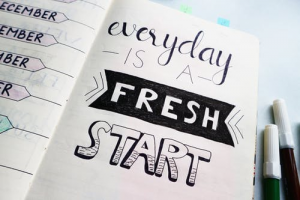See How Easily You Can Look Professional in Meetings
There are about 11 million formal business meetings each day in the United States. That time around the conference table can be a waste of time or you can turn it into your opportunity to shine.
When you learn how to look professional in management forums and client consultations, you can impress your boss and bond with your colleagues.
It is an important skill because the amount of time you spend in business gatherings is likely to increase as you take on more responsibility. Study these tips for what to do before and during a meeting so you will be prepared to move on up.

Things to Do Before a Meeting
1. Streamline your schedule. You will feel calmer and achieve more if you are realistic about how much you can fit into a single day. Sit out conferences where your attendance is optional. See if you can delegate some sessions to another member of your staff.
2. Check the agenda. In advance thoroughly read the agenda for the day. Focus on subjects that can make the most significant contribution.
3. Review action items. Did you promise to find a new IT consultant or reduce paper costs the last time the department sat down together? Ensure you followed up on each of your previous commitments.
4. Research solutions. Maybe you can predict the challenges that may come up. Be prepared with potential answers. If you are going to be short-staffed over the summer, line up temporary employees and interns.
5. Pause and refresh. Give yourself a pause in between revising the budget and reporting on your sales statistics.Stop to call a friend or drink a cup of tea. Rest your eyes and take a few deep breaths. Clear your mind so you’re ready to tackle the next topic.

Things to Do During a Meeting
- Be punctual. Showing up on time demonstrates your respect for others. If you are unavoidably tied up, let the group know so they can decide if they are going to proceed without you to start.
- Recognize the leader. There is a difference between adding to a meeting and taking it over. Follow any rules about taking turns to speak, and stick to the time limits.
- Turn off your devices. If possible, leave your phone and tablet off. Turn the sound off if you are anticipating an urgent message, and step outside to take calls.
- Resist multitasking. It may be tempting to try to catch up on paperwork or plan your grocery shopping. You will be more productive if you stay focused.
- Listen closely. Now that you have put aside the distractions, you can give your fellow workers your full attention. Sit up straight. Make eye contact, and voice your approval. Ask relevant follow up questions.
- Chime in early. It is easier to participate in a meeting if you start weighing in from the start. That way there is still plenty of original comments to make and you feel like you are part of the conversation.
- Take notes. If your mind wanders, it will benefit you to write down some observations. Studies indicate people remember information better when you write things down by hand rather than using their laptop.
- Be positive. How do you remain zealous when it looks like others are zoning out or preparing to race for the nearest exit? Try to steer the discussion towards what is working and constructive actions that can build on that momentum.
Stand out as an employee who can discuss ideas, sort out conflicts, resolve challenges, and increase productivity. Developing an executive presence in meetings will help you to work smarter and advance your career.
What if you could talk to a nuetral HR Manager this week?
You can. With Employ and Relate's as-needed HR Consulting Appointments, you'll never have to face work problems alone again.
